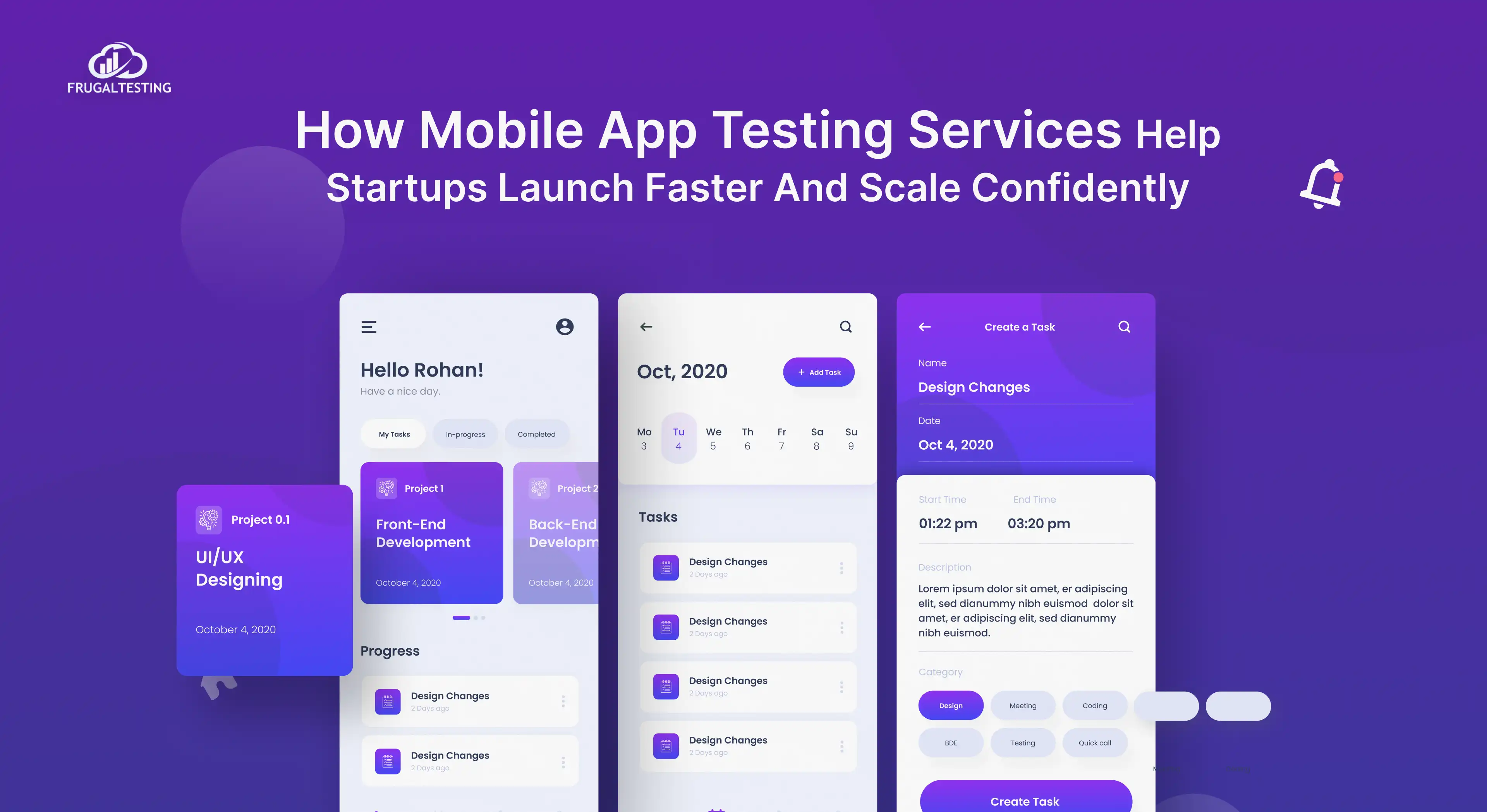In software development, launching products quickly while maintaining quality is crucial. Companies are always trying to improve their software and get it to market faster. This is where Quality Assurance (QA) testing services play a pivotal role.
This article will examine QA testing services, including their importance in ensuring high-quality software, competitive advantages, and their role in accelerating the software development process and reducing time-to-market.
QA testing includes checking software for functionality, performance, security, and usability. Continuous testing in software development helps businesses ensure product quality and competitiveness. QA testing services are crucial for achieving faster time-to-market efficiency. Let's explore their significance further.
📌 QA Testing Services Overview: Learn how QA accelerates time-to-market, ensures quality, and boosts competitiveness.
📌 Quality Assurance: Understand its proactive nature, ongoing role, and distinction from Quality Control (QC).
📌 Types of QA Testing: Explore functional, performance, security, and automation testing, along with consulting.
📌 Benefits: Discover how QA services improve quality, reduce costs, mitigate risks, and offer scalability.
📌 Accelerating Time-to-Market: Learn how early issue detection, upfront investment, and automation contribute to faster releases.
📌 Service Lifecycle: Understand the stages from requirements analysis to test closure, ensuring thorough testing.
What is Quality Assurance?
Quality assurance (QA) is a systematic process used in manufacturing and service industries to ensure that the products or services delivered to customers meet the agreed-upon quality standards. 🛠️
The testing process includes activities such as functional testing, testing process management, and the use of testing tools to guarantee the quality and reliability of the final product. Quality assurance is included in the development process to maintain quality throughout the product lifecycle.🔄
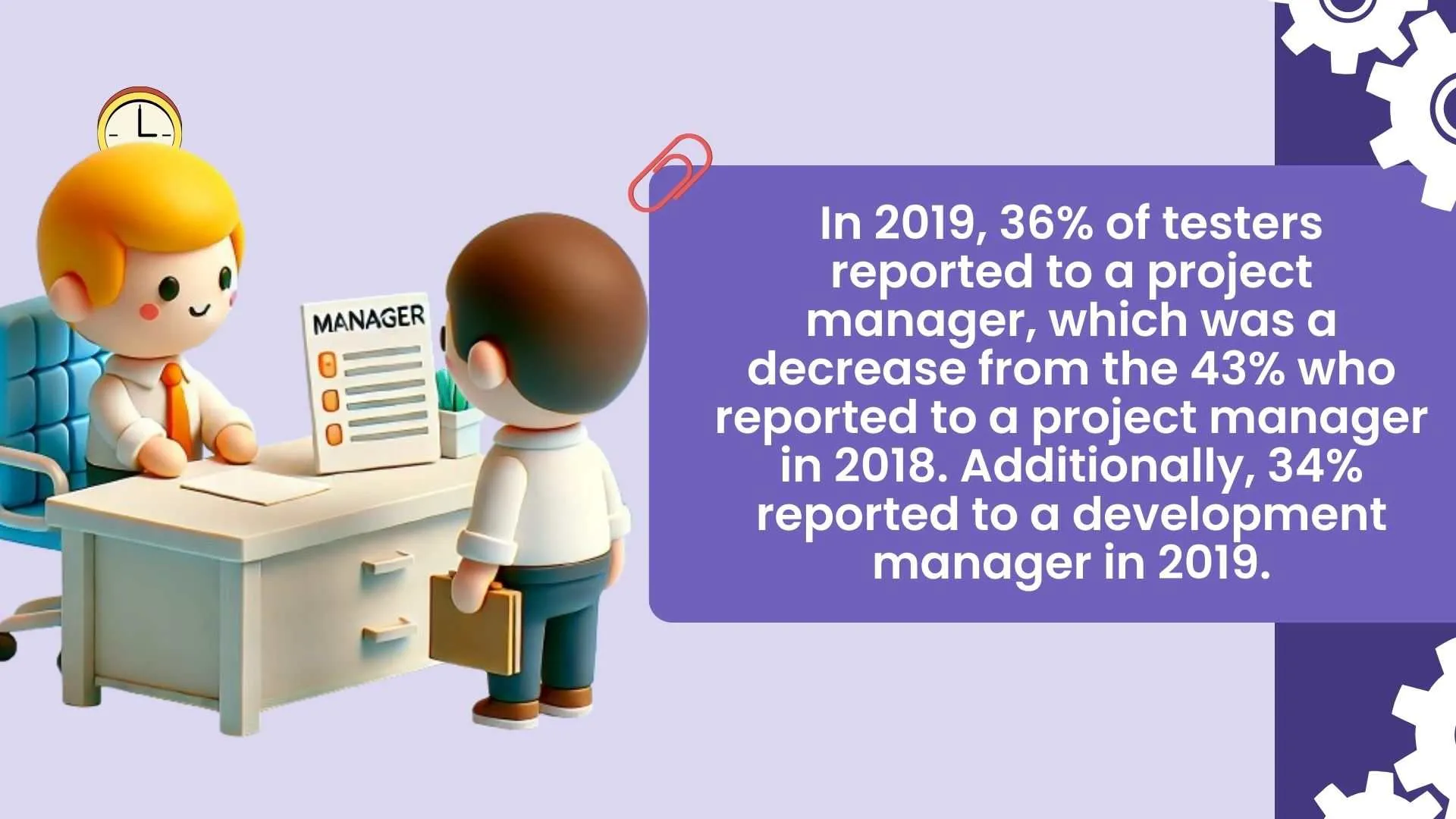
Here are some key points about QA:
- Proactive vs. Reactive:
- QA is proactive, aiming to prevent quality failures by addressing the sources of potential issues throughout a product’s development lifecycle. 🛠️
- In contrast, Quality Control (QC) is reactive. It focuses on detecting mistakes, errors, or missed requirements after the product has been built. 🔍
- Ongoing vs. After Development:
- QA operates throughout the development process, ensuring each aspect of the product aligns with quality standards.🔄
- QC takes place after development, checking the product for mistakes or deviations from specifications before it reaches customers.

What are QA testing services?
QA testing services are essential for ensuring the quality, reliability, and performance of software products. These services provide a thorough software evaluation process, including both manual testing and automated scripts to identify and address issues before deployment.
Here are some key types of QA Testing services:
- Functional Testing:
- Verifies software functionality aligns with business goals and specifications. 🎯
- Includes unit, integration, and system testing for a reliable software product. 🛠️
- Performance Testing:
- Evaluates the software’s responsiveness, scalability, and resource usage for optimal user interface and scalability. 📈
- Types include load, stress, and endurance testing. ⚙️
- Security Testing:
- Identifies vulnerabilities and weaknesses, safeguarding against human error and threats. 🔒
- Includes penetration testing, vulnerability scanning, and code review. 🛡️
- Automation Testing:
- Automates repetitive tasks, freeing manual testers for complex scenarios. 🤖
- Improves efficiency and test coverage, accelerating product delivery. ⏩
- QA Consulting:
- Offers personalized advice, enhancing customer satisfaction and loyalty.
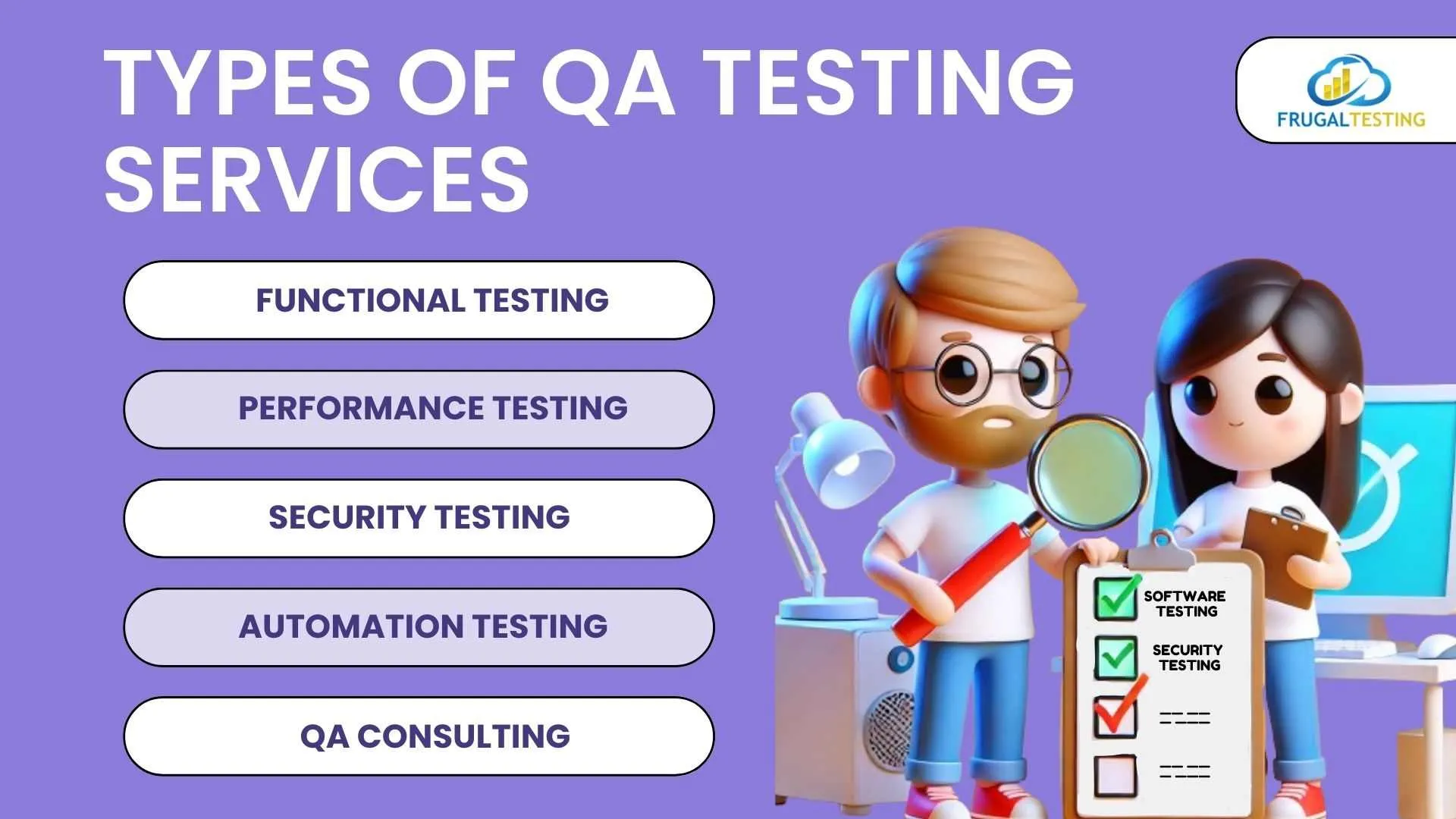
Several companies specialize in providing QA services. Some notable providers include:
- DeviQA: A global leader in QA and testing since 2010
- Chetu: A US-based software development company offering industry-specific solutions and testing services
- QA Madness: A quality assurance and software testing company dedicated to elevating digital product quality
Remember that choosing the right QA services depends on your specific needs, budget, and project requirements.

Benefits of using QA Testing Services
Using QA testing services offers several benefits for software development and product quality:
- Improved Software Quality
- QA services help identify and fix defects early in the development process, leading to higher-quality software. 🛠️
- Rigorous testing ensures that the product meets functional requirements and performs as expected. 🧪
- Reduced Costs:
- Detecting and fixing issues early prevents costly rework during later stages. 💰
- QA services help avoid expensive post-release bug fixes and customer support. 🚫
- Risk Mitigation:
- QA identifies potential risks and vulnerabilities, allowing proactive risk management. 🛡️
- Security testing helps protect against data breaches and other security threats. 🔒
- Faster Time-to-Market:
- Efficient QA processes accelerate product development cycles. ⏱️
- Timely releases help businesses stay competitive. 🚀
- Scalability and Flexibility:
- Outsourcing QA services provides scalability based on project needs. 🔄
- Companies can adapt resources as required without maintaining an in-house QA team. 💼
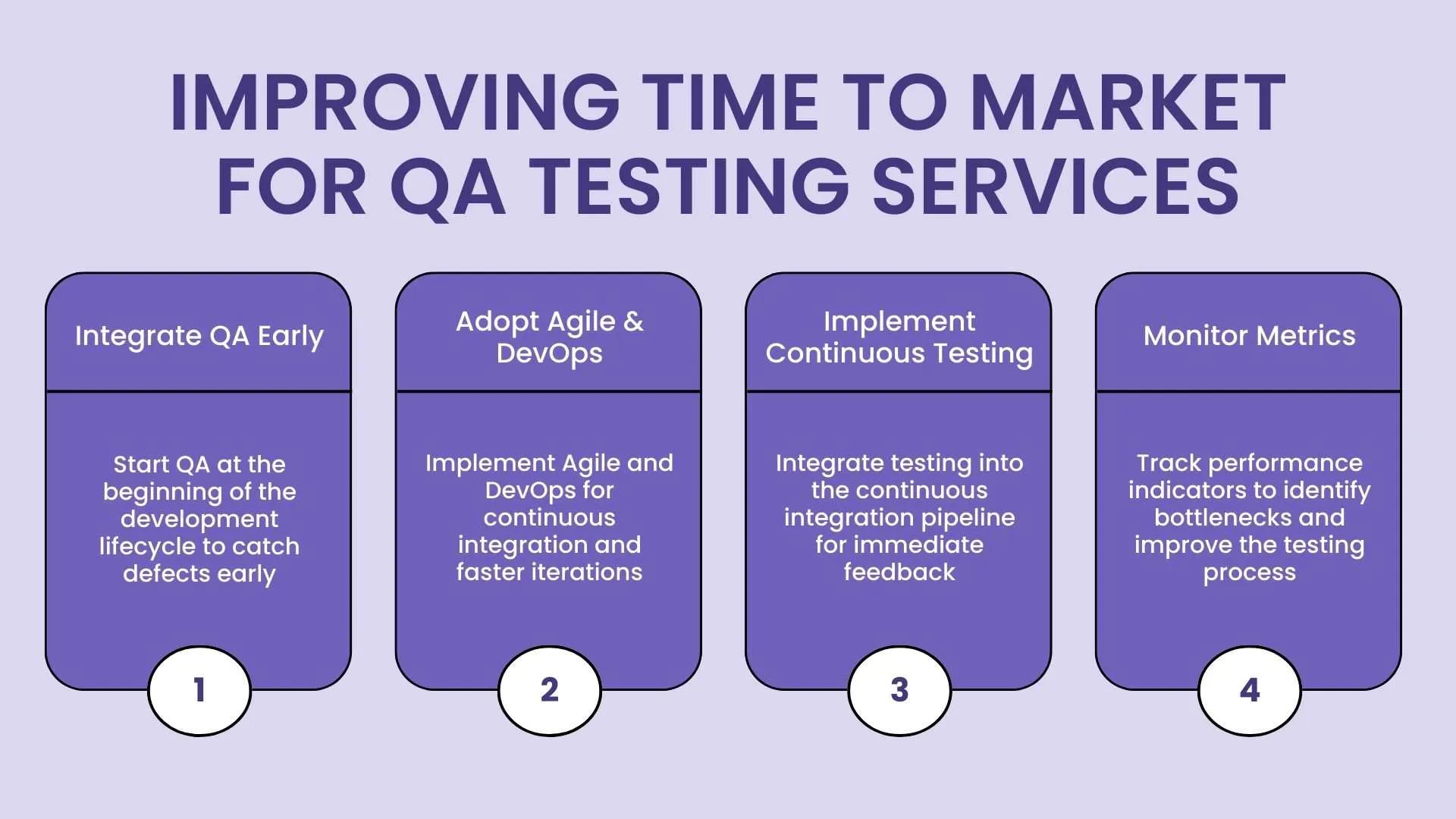
How exactly do QA testing services help to achieve faster time-to-market?
The quest for faster time-to-market is a top priority for businesses across industries. QA testing services contribute to achieving faster time-to-market in several ways:
- Early Detection of Issues:
- QA identifies defects and inconsistencies during development. 🔍
- Fixing issues early prevents delays in later stages, ensuring a smoother release process. ⏳
- Upfront Investment:
- Investing in QA services at the outset minimizes costs down the line.
- A strategic approach to quality assurance ensures a high return on investment. 📈
- Automated testing:
- Automation tools execute repetitive test cases quickly. 🤖
- Automated regression testing helps maintain quality without manual effort. 🔄
- Agile and DevOps Practices:
- QA integrates seamlessly with Agile and DevOps methodologies. 🔄
- Continuous testing accelerates development cycles. ⚙️

QA Service Lifecycle
The QA service lifecycle involves several stages to ensure software quality. Let’s explore each phase:
- Requirements Analysis:
- QA collaborates with stakeholders to understand project requirements thoroughly.
- Detailed analysis ensures that QA aligns testing efforts with the intended functionality.📋
- Test Planning:
- QA creates a comprehensive test plan, considering factors like scope, objectives, resources, and schedules.
- Risk assessment and test environment setup are crucial components.⚠️
- Test Design:
- QA designs test cases meticulously based on requirements.🛠️
- Test scenarios, data inputs, and expected outcomes are documented for each feature.
- Test Execution:
- QA executes test cases manually or using automated tools.⚙️
- Defects discovered during testing are logged, and results are analyzed.
- Defect Reporting and Tracking:
- QA reports defects promptly, providing clear information for developers.
- Tracking ensures that defects are addressed and resolved efficiently.🎯
- Regression Testing:
- After fixing defects, regression testing verifies that existing functionality remains intact.
- It prevents unintended side effects due to code changes.🔄
- Test Closure:
- QA evaluates test coverage and completeness.
- A test summary report summarizes the testing efforts and outcomes.📊

Variety of QA Testing Services Available
Quality Assurance (QA) testing services encompass a wide range of activities to ensure software quality including:
- Unit Testing:
- engineers perform unit testing on small components (such as functions, methods, modules, or classes) to verify their functionalities.
- Ensuring that each component works correctly in isolation is crucial before integrating it into the larger system.
- Integration Testing:
- Evaluates how individually tested components function together as a whole.
- Detects issues related to data flow, communication, and interactions between different parts of the software.
- Functional Testing:
- Verifies that the software functions correctly according to its specifications.
- Includes various levels of testing, such as positive and negative scenarios.
- Black Box Testing:
- Focuses on testing the software without knowledge of its internal structure or code.
- Validates functionality from a user’s perspective.
- White Box Testing:
- Examines the internal logic, code, and structure of the software.
- Helps identify defects and assess code quality.

How QA Testing Services Enhance Software Quality?
QA testing services are essential for improving software quality by conducting testing and quality assurance measures to ensure that the final product meets high standards. Here are some strategies to achieve this:
- Identifying Bugs Early: Detecting and resolving bugs early can prevent them from becoming major issues later in the development cycle, resulting in cost savings and increased market share.📈Ensuring Compliance: Following standards and rules helps make software reliable and legal, making continuous delivery easier.🚀
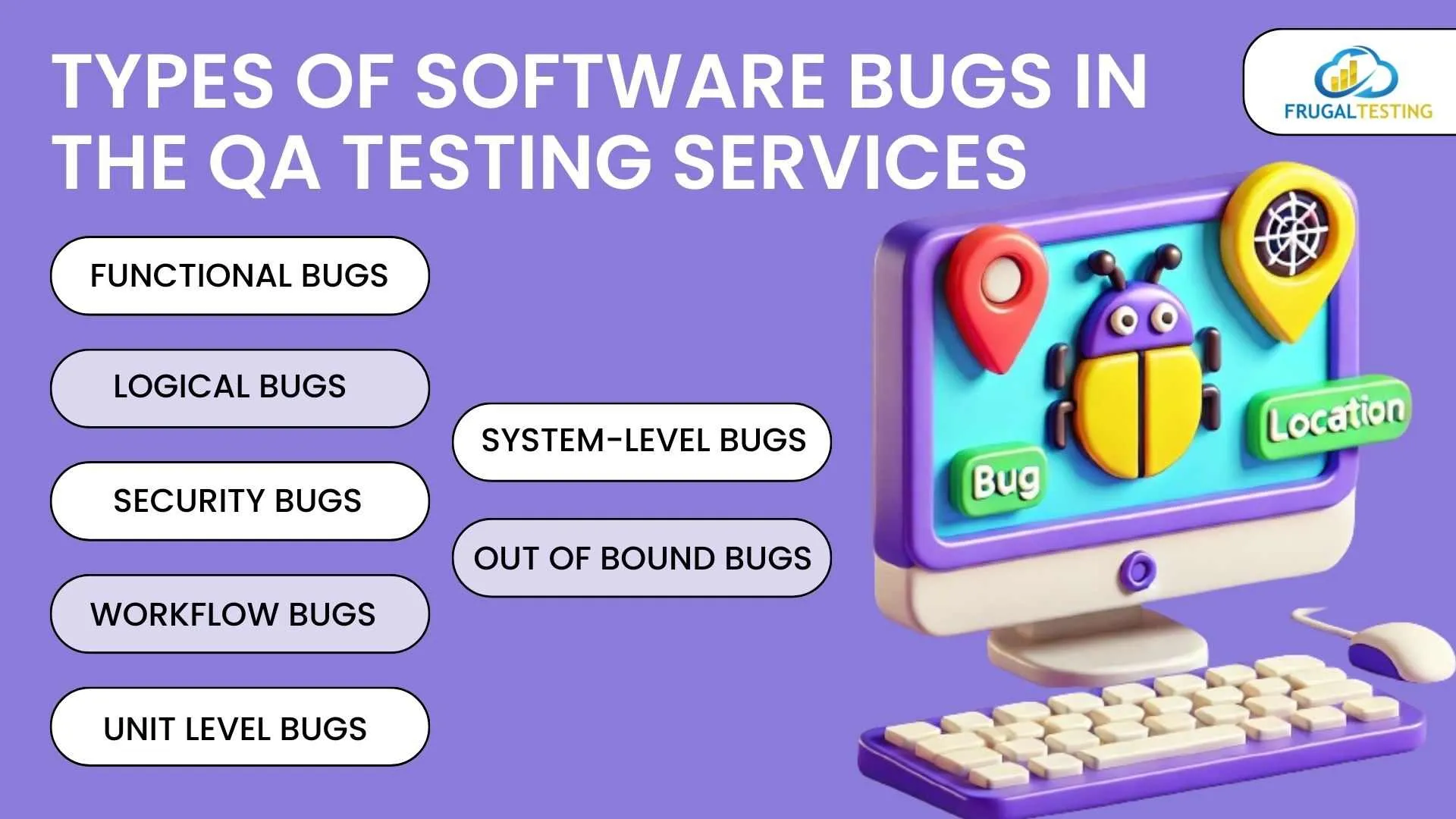
- Ensuring Compliance: Following standards and rules helps make software reliable and legal, making continuous delivery easier.🚀
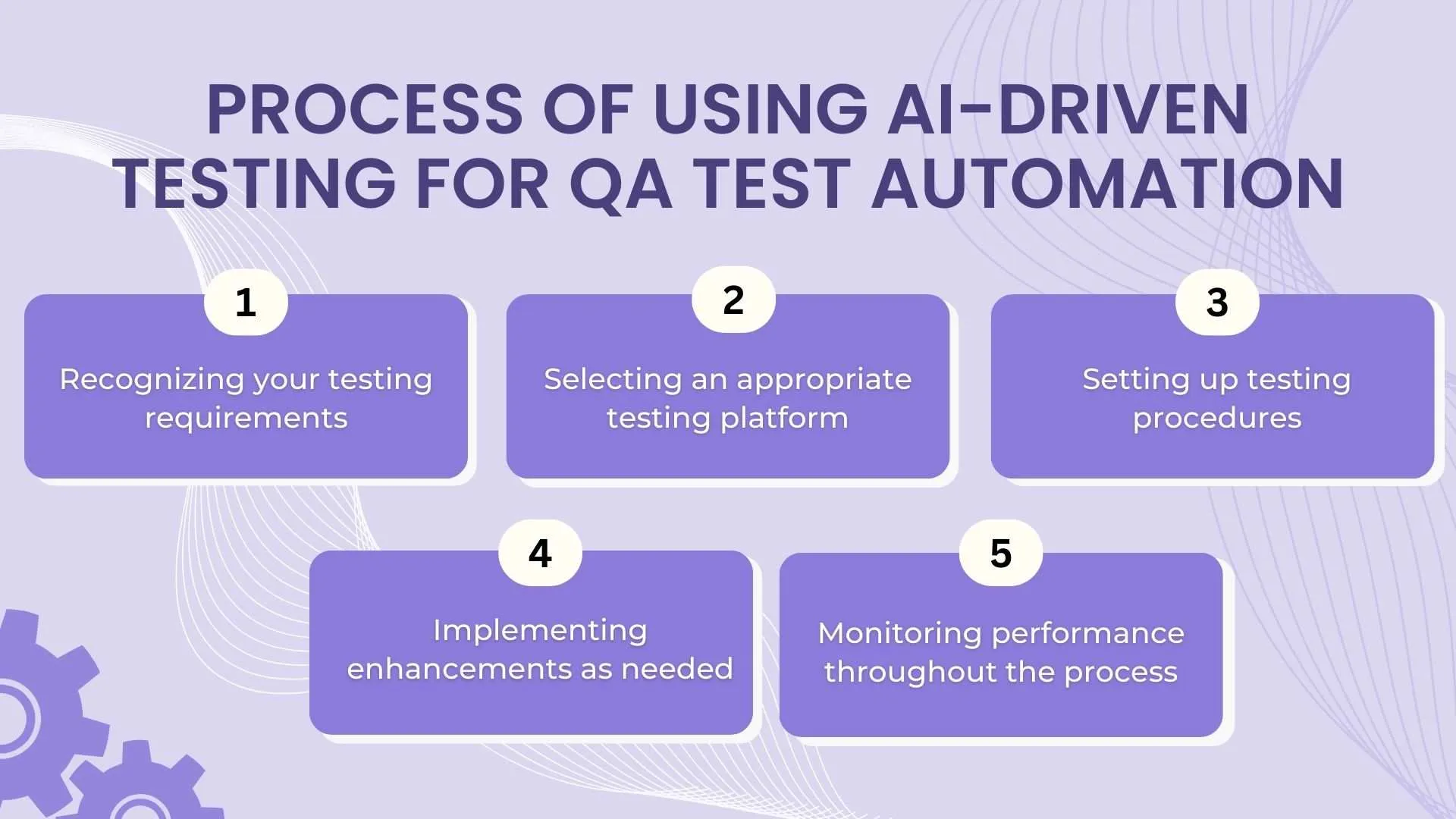
- Enhancing User Experience: QA testing services improve user experience by fixing usability issues, and helping the entire team during the design phase.🛠️

QA Testing Methodology
QA testing methodology, or Software testing methodology, is the term for the ideas and methods used to make sure that application applications meet end-user standards related to:
- Systematic Approach:
- QA testing follows a systematic process to verify software quality.🔄
- It includes planning, designing, executing tests, and defect management.
- Models and Stages:
- QA methodologies involve various models (such as Waterfall, Agile, or DevOps) that define stages in the software development lifecycle.📊
- Each stage has specific testing activities, ensuring comprehensive coverage.
- Types of QA Testing:
- QA encompasses different testing types, including functional, performance, security, and regression testing.🛠️
- These methods help uncover defects and validate software behaviour.🔍
- Optimization and Monitoring:
- QA teams continuously optimize processes, monitor progress, and adapt to changing requirements.
- Regular reviews and improvements enhance overall software quality.📈
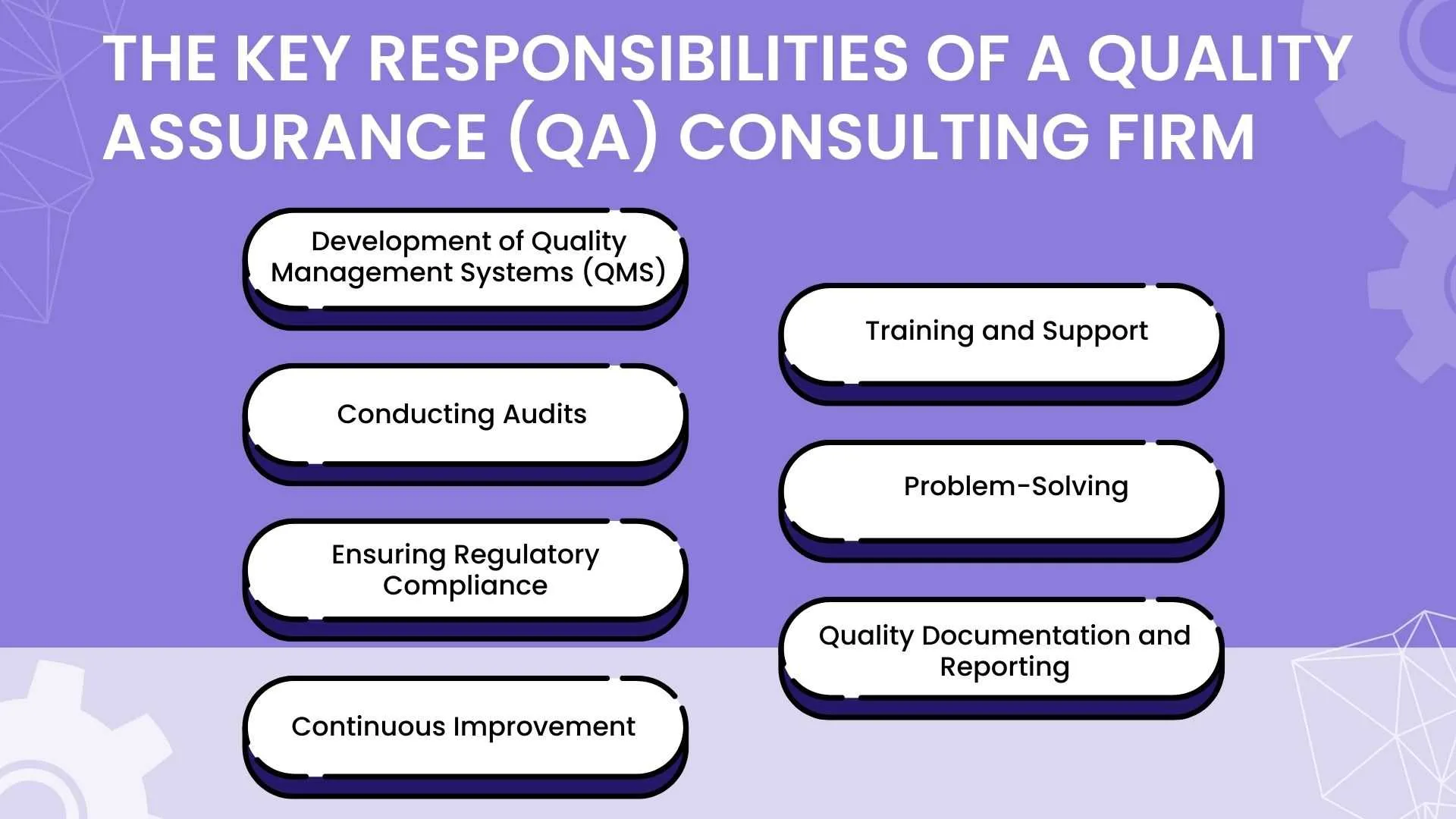
Top 10 QA Testing Tools
Here are the top 10 popular QA testing tools that can help you ensure software quality:
- Selenium: Widely used for web application testing and automation.
- JMeter: Apache JMeter is primarily used for load testing, performance testing, and stress testing of web applications.
- Appium: It is an open-source tool for automating native, mobile web, and hybrid applications on iOS and Android platforms.
- Jenkins: A popular open-source automation server for continuous integration and delivery.
- Postman: Great for API testing and collaboration.
- LoadRunner: LoadRunner is used for performance testing, load testing, and stress testing.
- LambdaTest: Optimal for AI-powered cross-browser testing
- Cypress: Known for fast, reliable end-to-end testing for web applications.
- Cucumber: Ideal for behavior-driven development (BDD) testing.
- Katalon Studio: Katalon Studio is an all-in-one automation solution for web, mobile, and API testing.

Complete QA testing strategy
A comprehensive Quality Assurance (QA) testing strategy is essential for ensuring software quality. Here are the key components to consider:
- Requirements Analysis:
- Understand project requirements thoroughly. 📋
- Define clear acceptance criteria. ✅
- Test Planning:
- Create a detailed test plan. 📝
- Identify testing objectives, scope, and resources. 🎯
- Testing Costs:
- Consider the budget allocated for testing activities. 💰
- The testing strategy should aim for cost-effective solutions. 💲
- Testing Team:
- Assemble a skilled and efficient testing team. 👥
- Ensure collaboration and communication throughout the entire testing process. 🔄
- Rapid Testing:
- Implement strategies for rapid testing to meet tight deadlines. ⏱️
- Ensure rigorous testing despite time constraints. 🔍
- Automation Strategy:
- Decide which tests to automate. 🤖
- Select appropriate tools (e.g., Selenium, Appium). 🛠️

Common Challenges in Implementing QA Testing Services
Implementing QA testing services can be challenging, but understanding these hurdles helps improve testing effectiveness. Here are some common challenges and practical solutions:
- The “One Size Fits All” Approach:
- Using the same tests for all software, regardless of unique needs, can lead to incomplete testing. ❌
- Solution: Personalize testing methods based on end-users’ requirements. Create test scenarios that mirror real-life situations and user actions. 🎯
- Lack of Skilled Workforce or Experience:
- Finding experienced testers is tough due to the high demand.🔍
- Solution: Invest in building and retaining a skilled testing team. Provide training, attract experienced testers, and encourage expertise and innovation.
- Unstable Test Environment:
- Consistent or reliable test environments help testing.
- Solution: Establish stable, representative test environments that closely mimic production setups.🛠️
- Wrong Testing Estimation:
- Incorrectly estimating testing efforts can lead to delays.⏳
- Solution: Collaborate closely with development teams to estimate testing time accurately. Consider factors like complexity, scope, and risk.

In short!!
Releasing high-quality software quickly is crucial in the digital world. 🌐 QA testing services play a crucial role in maintaining software quality and expediting its release process. 🚀
Companies can speed up product launches and stay ahead of competitors by using automation, testing, and advanced tools. ⚙️ Utilize QA testing services to enhance your business and improve customer satisfaction. 📈
Frequently Asked Questions
👉🏻 Is QA Testing Important for Software Development?
Absolutely! QA testing ensures software reliability, functionality, and security, ultimately enhancing user satisfaction and business success.
👉🏻 Are QA Testing Services Suitable for Both Web and Mobile Applications?
Yes, QA testing services cater to a wide range of platforms, including web, mobile, and desktop applications.
👉🏻 Do QA Testing Services Help Businesses Save Time and Money?
Definitely! By identifying and rectifying defects early, QA testing services minimize rework and reduce the overall cost of development.
👉🏻 How Do QA Testing Services Ensure Platform and Device Compatibility?
QA testing services employ a variety of techniques, including cross-platform testing and device emulation, to ensure compatibility across different platforms and devices.
👉🏻 How Are Sensitive Data Security and Privacy Ensured by QA Testing Services?
Security testing, including penetration testing and vulnerability assessments, is conducted to identify and address potential security risks, ensuring data security and privacy compliance.





%201.webp)

